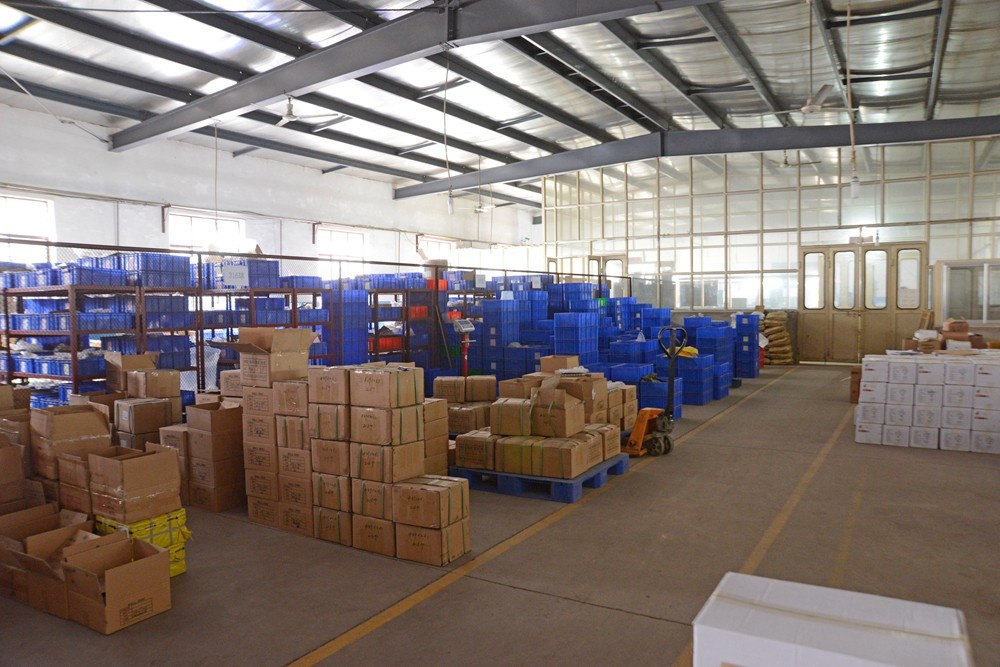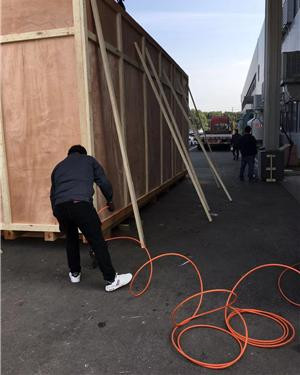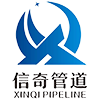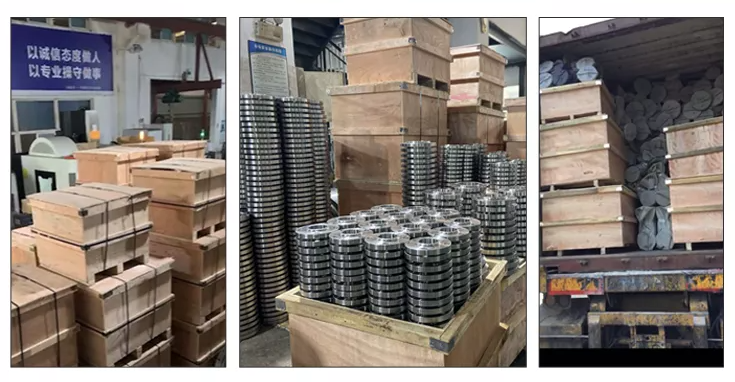ASME B16.5 Carbon Steel ASTM A105 A694 F70 Forged Anchor Flange
| Forged Anchor Flange | |||||||||
| Size: | 1/2"-60" | ||||||||
| Pressure Rating: | Class150#-2500# | ||||||||
| Standard: | ANSI/ASME or as per customer's requets. | ||||||||
| Material: | Carbon Steel, Stainless Steel, Alloy Steel. | ||||||||
| Steel Grade: | ASTM A105, A350 LF1, A350LF2, A350LF3, ASTM A182 F304, F304L, F316, F316L, F321, A694 F42, F46, F50, F56, F60, D70 etc. | ||||||||
| Finish: | Rust Proof Oiled or as per customer's requirements. | ||||||||
| Application: | Petroleum industry, Refinery Company, fertilizer industry, power station, shipbuilding, onshore platform | ||||||||
| The Anchor flange is a one-piece combination reducer and welding neck flange designed expressly for effecting pipe size increases at flanged connections to pumps, valves, compressors and other equipment. It provides a more compact, more efficient and frequently a more economical means than is permitted by the conventional two-piece combination of a concentric reducer and welding neck flange. | |||||||||
| Anchor flanges are used to restrain pipeline movement caused by thermal expansion changes or external forces. The most common method of securing an anchor flange is to embed it into a concrete thrust block, thereby spreading the pipeline forces throughout a large foundation. However, anchor flanges can be secured in other ways as necessary to overcome the axial force in the pipeline. | |||||||||
Product Introduction
ASME B16.5 is a standard issued by the American Society of Mechanical Engineers that specifies the design, sizing, fabrication and installation requirements for steel pipe flanges.
The ASME B16.5 flange standard covers various types of flanges, including carbon steel flanges. Carbon steel is a common metal material commonly used to make flanges, pipes and other industrial equipment.
ASME B16.5 carbon steel anchor flange is also one type of ASME B16.5 flange. It is usually used to connect pipes, valves, flanges and other accessories in piping systems.
Material:
ASME B16.5 Carbon Steel Anchor Flanges are typically made from carbon steel, a strong and durable metal used in a variety of industrial applications. It has excellent strength and corrosion resistance.
Size:
This standard specifies the flange dimensions and flange surface processing requirements to ensure that each flange can be properly connected and sealed when installed.
Pressure Level:
The ASME B16.5 flange standard defines flanges of different pressure levels to meet the needs of various piping systems. Carbon steel anchor flanges usually have different pressure levels, such as 150#, 300#, 600#, etc.
Installation: Carbon steel anchor flanges are usually connected to other components of the piping system through bolts and nuts to ensure sealing and connection stability. Relevant standards and regulations need to be followed during installation.
Advantages and Disadvantages:
Advantage:
1. Strength and Durability: Carbon steel offers exceptional strength and durability, allowing it to withstand high pressure and temperature conditions. This makes carbon steel anchor flanges ideal for use in high-strength piping systems.
2. Corrosion resistance: Although carbon steel itself is not stainless steel, it has good corrosion resistance to most common pipeline media. In addition, carbon steel can be treated with anti-corrosion treatments to enhance its corrosion resistance.
3. Reliability: Carbon steel anchor flanges provide reliable connections, ensuring the sealing performance of the pipeline system and reducing the risk of leakage.
4. Wide range of applications: Carbon steel anchor flanges are suitable for various industries, including chemical industry, oil and gas, electric power, paper making, water treatment and other fields.
5. Various pressure levels: Carbon steel anchor flanges are available in different pressure levels to meet the needs of different pipeline systems.
Disadvantages:
1. Corrosion Risk: Carbon steel anchor flanges may be susceptible to corrosion under certain environmental conditions. This requires special anti-corrosion measures such as coating or the use of stainless-steel flanges.
2. Weight: Carbon steel is a relatively heavy material, so carbon steel anchor flanges can be heavier, which can make installation and maintenance more difficult.
3. Cost: The cost of carbon steel anchor flanges is generally higher, especially when high-alloy carbon steel is required.
4. Maintenance requirements: Carbon steel flanges require regular maintenance and anti-corrosion treatment to extend their life and ensure their performance.
In summary, ASME B16.5 carbon steel anchor flange is a common pipe connection element suitable for various industrial applications, providing reliable connection and sealing performance. When selecting and installing such flanges, the pressure rating, temperature, and media of the piping system need to be considered to ensure that the appropriate size and type of flange is selected. In addition, the requirements of the ASME B16.5 standard should be strictly adhered to ensure safe and reliable piping system operation.
1.Shrink bag–> 2.Small Box–> 3.Carton–> 4.Strong Plywood Case
One of our storage

Loading

Packing & Shipment
1.Professional manufactory.
2.Trial orders are acceptable.
3.Flexible and convenient logistic service.
4.Competitive price.
5.100% testing,ensuring the mechanical properties
6.Professional testing.
1.We can guarantee the best material according to related quotation.
2.Testing is performed on each fitting before delivery.
3.All packages are adapt for shipment .
4. Material chemical composition is conformed with international standard and environment standard.
A) How can I get more details about your products?
You can send an email to our email address. We will provide catalogue and pictures of our products for your reference.We can also supply pipe fittings, bolt and nut, gaskets etc. We aim to be your piping system solution provider.
B) How can I get some samples?
If you need, we will offer you samples for free, but new customers are expected to pay express charge.
C) Do you provide customized parts?
Yes, you can give us drawings and we will manufacture accordingly.
D) To which country have you supplied your products?
We have supplied to Thailand, China Taiwan, Vietnam, India, South Africa, Sudan, Peru , Brazil, Trinidad and Tobago, Kuwait, Qatar, Sri Lanka, Pakistan, Romania, France, Spain, Germany, Belgium, Ukraine etc. (Figures here only include our customers in latest 5 years.).
E) I can’t see the goods or touch the goods, how can I deal with the risk involved?
Our quality management system conforms to the requirement of ISO 9001:2015 verified by DNV. We are absolutely worth your trust. We can accept trial order to enhance mutual trust.
Products categories
-

Phone
-

E-mail
-

Whatsapp
-

Top



